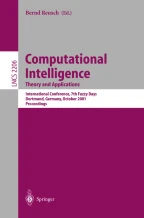Abstract
There has been a long-lasting misunderstanding in the literature of artificial intelligence and uncertainty modeling, regarding the role of fuzzy set theory and many-valued logics. The recurring question is that of the mathematical and pragmatic meaningfulness of a compositional calculus and the validity of the exluded middle law. This confusion pervades the early developments of probabilistic logic, despite early warnings of some philosophers of probability. This talk tries to clarify this situation. It emphasizes three main points. First, it suggests that the root of the controversies lies in the unfortunate confusion between degrees of belief and what logicians call “degrees of truth”. The latter are usually compositional, while the former cannot be so. This claim is first illustrated by laying bare the non-compositional belief representation embedded in the standard propositional calculus. It turns out to be an all-or-nothing version of possibility theory. This framework is then extended to discuss the case of fuzzy logic versus graded possibility theory. Next, it is demonstrated that any belief representation where compositionality is taken for granted is bound to at worst to collapse to a Boolean truth assignment and at best to a poorly expressive tool. Lastly, some claims pertaining to an alleged compositionality of possibility theory are refuted, thus clarifying a pervasive confusion between possibility theory axioms and fuzzy set basic connectives. Lastly, some connections between numerical possibility and probability will be outlined based on the fact that possibility distributions may encode families of probabilities. This talk is partially based on a paper with Henry Prade, to appear in the Annals of Mathematics for Artificial Intelligence.
Access this chapter
Tax calculation will be finalised at checkout
Purchases are for personal use only
Similar content being viewed by others
Author information
Authors and Affiliations
Editor information
Editors and Affiliations
Rights and permissions
Copyright information
© 2001 Springer-Verlag Berlin Heidelberg
About this paper
Cite this paper
Dubois, D. (2001). Possibility Theory, Probability Theory and Multiple-Valued Logics: A Clarification. In: Reusch, B. (eds) Computational Intelligence. Theory and Applications. Fuzzy Days 2001. Lecture Notes in Computer Science, vol 2206. Springer, Berlin, Heidelberg. https://doi.org/10.1007/3-540-45493-4_26
Download citation
DOI: https://doi.org/10.1007/3-540-45493-4_26
Published:
Publisher Name: Springer, Berlin, Heidelberg
Print ISBN: 978-3-540-42732-2
Online ISBN: 978-3-540-45493-9
eBook Packages: Springer Book Archive
